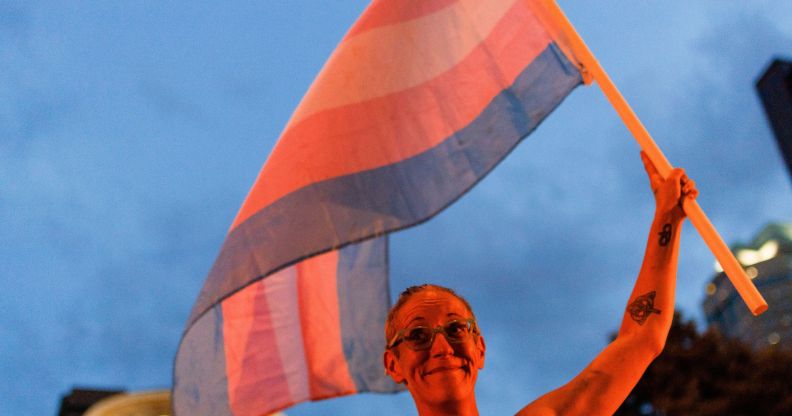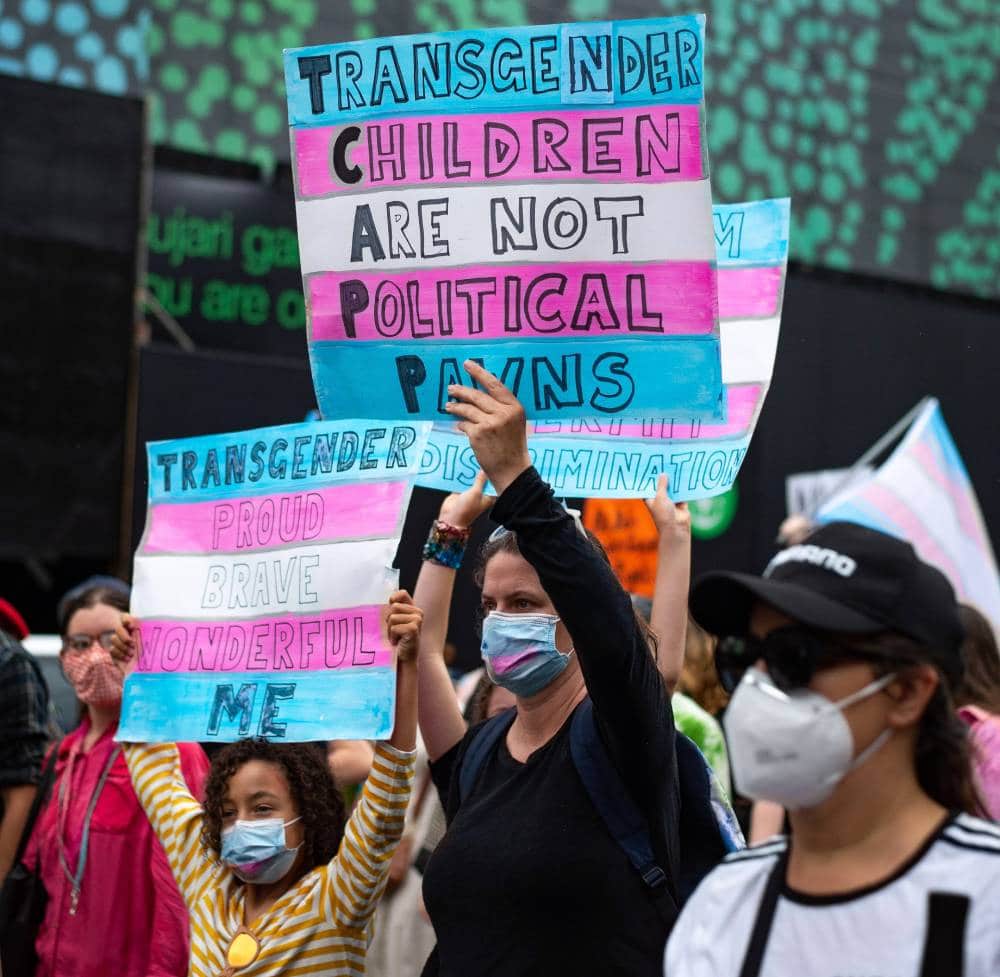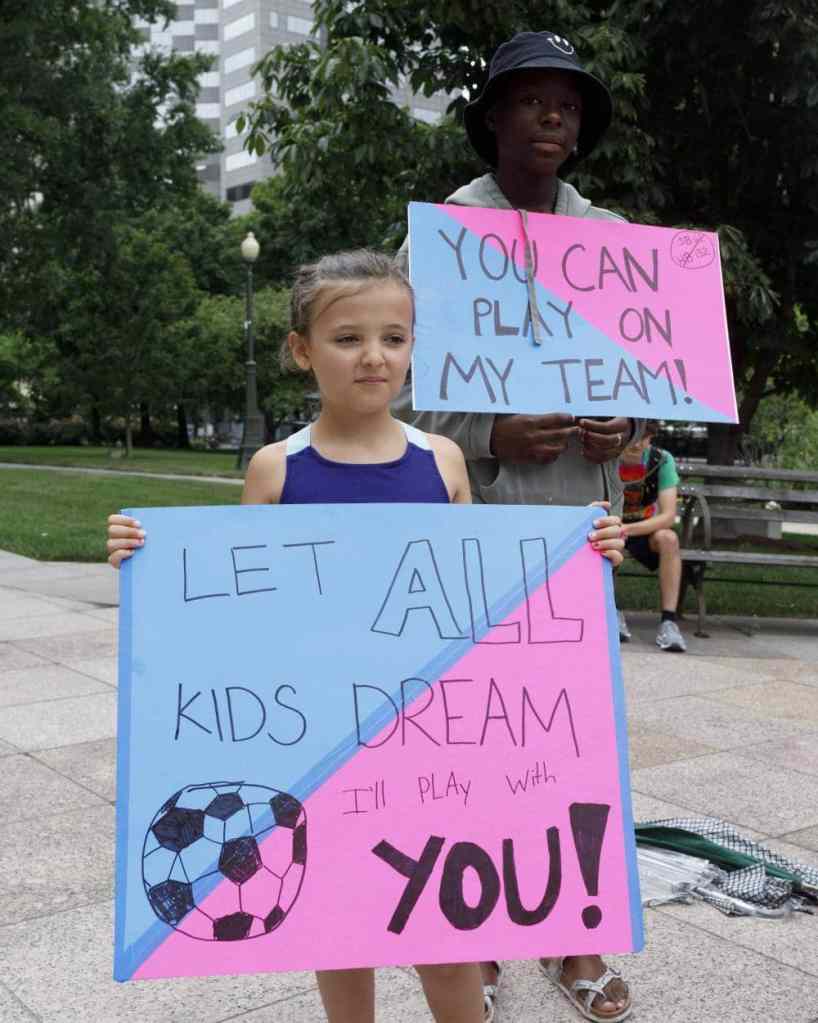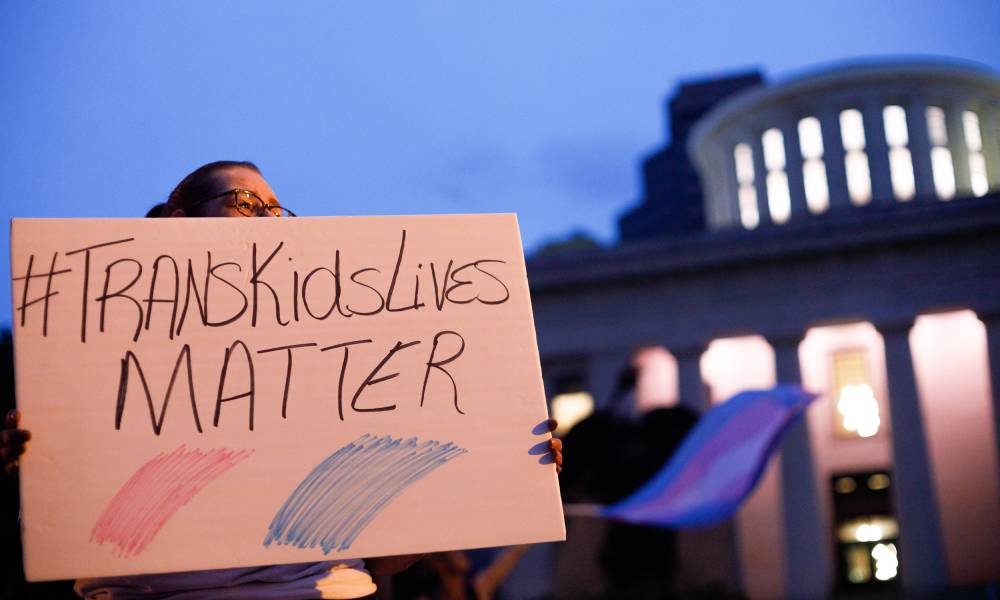Ohio is the latest state to pass bill blocking trans youth from gender-affirming care

A trans political candidate has been disqualified from running for Ohio’s House of Reps after failing to disclose her deadname. (Getty)
Ohio has become the latest state to pass a bill banning trans youth from accessing gender-affirming care or playing on sports teams that align with their gender identity.
On Wednesday (13 December), lawmakers passed House Bill 68, which will prohibit trans and nonbinary minors from gender-affirming treatment, including HRT, puberty blockers, and medical or surgical procedures.
Much like bills of this nature in other states, Ohio’s House Bill 68 threatens medical professionals with lawsuits and the loss of their licence if they are found to be providing gender-affirming care to minors.

The bill will now be sent to the Republican-led Ohio state House for amendments before it lands on Governor Mike DeWine’s desk for final approval.
If it passes, Ohio will become the 23rd US state to restrict life-saving medical care for transgender and non-binary youth, despite strong pushback from LGBTQ+ advocates, medical professionals, educators, and parents.
Gender-affirming care, which had been widely available across the US for over a decade, is endorsed by major medical associations including the American Academy of Pediatrics, the American College of Physicians, the American Medical Association, the World Medical Association, and the World Health Organisation – to name a few.
Countless studies have proven that gender-affirming care is beneficial and overwhelmingly reduces rates of depression and suicide.
However, Republican lawmakers argued in favour of the ban, claiming that teenagers don’t know what they want, and that “parents are being manipulated by the physicians.”

That was a claim made by Rep Gary Click, who introduced House Bill 68 after doing “hours of research” on the topic, including watching YouTube videos and reading articles that were either written decades ago and have since been debunked, or written more recently but widely criticised for being transphobic, ABC News affiliate News 5 Cleveland reports.
Somehow, Click’s “hours of research” won more votes than LGBTQ+ advocates who gave testimony against the House Bill all day.
One such advocate was a teenager named Cassidy, who explained that she, personally, had detransitioned, having transitioned to male when she was 14 years old, then deciding it wasn’t right for her a few years later.
“If you medically transition and then detransition, your life isn’t ruined,” she told lawmakers.
“These bills are being proposed using stories like mine as evidence to support them. I’m not mutilated; I’m not ruined or unlovable.”

She concluded: “Transitioning didn’t take my future away from me, but banning transition will take the future away from the kids who kill themselves because of this bill.”
Elsewhere, Equality Ohio’s Maria Bruno pointed out that passing such a ban would have a more detrimental impact on children than not passing it.
“It would have a severe health impact on a lot of trans children and non-binary children in the state who are already receiving life-saving medicine, who would then be forcefully removed from the existing medications that have worked for them,” she said.
Additionally, House Bill 68 will force schools, higher education institutions, and private colleges to designate separate single-sex teams that align with students’ gender assigned at birth.
It will allow anyone who feels they missed out on an athletic opportunity, suffered a “direct or indirect harm”, or was punished for reporting a potential trans student on the team that aligns with their gender identity, the opportunity to sue their school and district.
Of the 400,000 student-athletes recorded by the Ohio High School Athletic Association, this bill may affect six – only three of whom had been approved to play in this spring’s sports season.
According to the non-profit think tank Movement Advancement Project, there are already 24 US states that have laws or regulations in place that ban trans student-athletes from playing sports that match their gender identity.
Suicide is preventable. Readers in the UK who are affected by the issues raised in this story are encouraged to contact Samaritans on 116 123 (www.samaritans.org), or Mind on 0300 123 3393 (www.mind.org.uk). Readers in the US are encouraged to contact the National Suicide Prevention Line on 1-800-273-8255.
How did this story make you feel?

